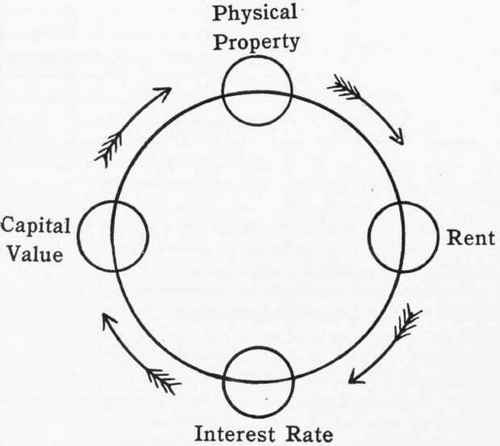Economic Rent And Urban Values
Description
This section is from the book "Elementary Economics", by Charles Manfred Thompson. Also available from Amazon: Elementary Economics.
Economic Rent And Urban Values
Compared with agricultural lands the process of determining the value of urban sites is usually a more difficult matter. Farm products are tangible, easily measured, and have a well-known market price.
Likewise the skill and ability ordinarily required to conduct farming operations are widely scattered among many persons. In the retail business, for example, the situation is different. The prospective buyer of a business site may feel safe in some cases in merely capitalizing the economic rent as represented by the contract rent of the tenant. More often he would exercise greater care in arriving at the value of the site under consideration. In other words, even where a business site has enjoyed a uniform rent for years, the determination of its value is a "hazardous occupation."

Fig. 10.
Determination of the value of residence sites is still more difficult, for the utilities that flow from a home have an unsettled market price. The best step to take in trying to arrive at the value of such a site is to secure the opinion of a great many persons. Even if the site is improved and the prospective buyer expects to rent it, the opinion of disinterested parties is valuable, for after all it is to just such persons that he expects to rent the property. The market values of adjoining properties are also a fair guide, particularly if they are being utilized by tenants; for it is a safe assumption that the united judgments of many buyers and sellers are approximately correct. In any case, the ultimate value of the site must be determined by society, for the difference between this particular site and some other one is largely a social matter.
Continue to:


